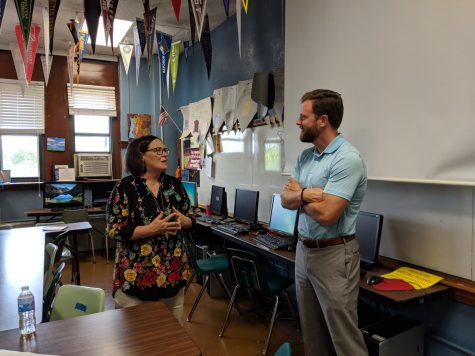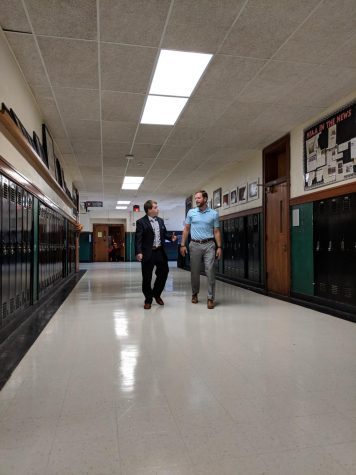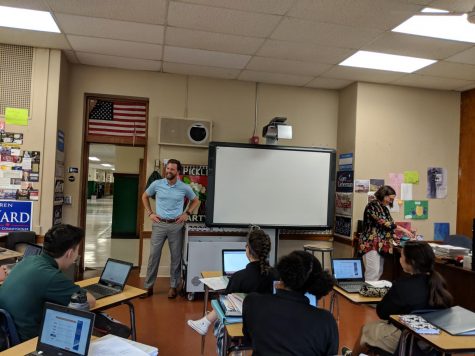Oklahoma House Rep. tours Harding, discusses public education role
September 18, 2018


Oklahoma state legislator Jason Dunnington (D-88) visited Harding at the request of principal Steven Stefanick on Wednesday, September 5. Dunnington represents Harding’s district, number 88, in the Oklahoma House of Representatives. It was his second time visiting, following a Board Meeting/Town Hall held at Harding during the spring teacher strike, which he spoke at.
Dunnington met with students, teachers and administrators across five different departments. “I think it’s important to be studious of education policy,” Dunnington said. “Public outreach is a big part of the equation.”
Both of his children attend public schools in Oklahoma City, and Dunnington said that this made education funding a “critically important” issue for him during his tenure in the House of Representatives.
The first part of the visit focused on science, math, and art programs at Harding. He visited the media center, science wing, math department, and art room – areas that have been reshaped in the past couple of years by donations from parents and alumni. “STEM is certainly the way of the future,” Dunnington said, “and when you add arts into the STEM program you unlock so much more potential.”

He and Stefanick briefly talked education funding with Algebra II teacher Dr. Michael Lewchuk while they walked to the AVID room. During last year’s state-wide teacher strike, Dunnington was a pro-teacher advocate of the tax measures proposed to fill the funding gap in education budgets and teacher pay.
Dunnington met with Margaret Hensley’s AVID students to talk about college and their plans for the future. “[I] grew up very blue-collar,” Dunnington said, “and education was the one thing everyone had a shot at.” Because of funding cuts, he said, the standard of that education has been losing ground for years.
He broke with many state politicians in advocating some of the benefits of Charter schools as opposed to their traditional public counterparts. “Charter schools have the opportunity to try things that traditional public schools don’t,” Dunnington said. “If we were to give the Edmond school district or the Putnam City district or the Moore district more freedom to do things like charter schools do, maybe we would see some different outcomes.”

